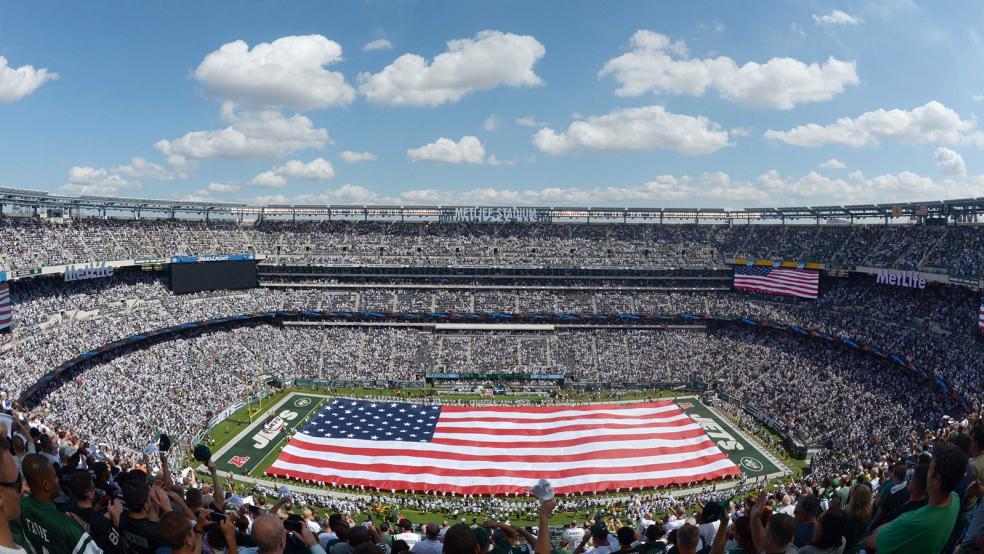Strong feelings of patriotism that peaked in the aftermath of the 9/11 terrorist attacks have been on the wane for more than a decade, as many Americans grappled with prolonged warfare in the Middle East, the worst recession in decades, and bitter political controversies over domestic and foreign policies.
As the nation prepares to observe another July 4th holiday, the share of people who are “extremely proud” to be an American has dropped sharply, from 70 percent in 2003 to a new low of 52 percent today, according to a new survey by Gallup.
Related: The Big Winners in the Trump-Clinton Race: Hatred, Prejudice and Voter Disgust
The long-term decline in extreme pride in the country – including steep drops in early 2005 and in 2013 -- are likely linked to a rising dissatisfaction among Americans with the general drift of the country and its economy, according to Gallup. At the height of the patriotic ardor, in 2004, 55 percent of Americans said they were generally satisfied with the way things were going. Since then, the rate of satisfaction has mostly held below 30 percent, according to the polling organization.
“Americans’ patriotism stayed relatively flat from 2006 through 2013, a period that spanned the Great Recession and Barack Obama’s election and first term as president,” Gallup wrote. “But over the last three years, Americans’ willingness to say they are extremely proud to be an American has declined further.”
For sure, there is still plenty of enthusiasm among Americans for their country: 29 percent of the public surveyed by Gallup from June 14 to 23 said they were “very proud” to be an American, while 13 percent said they were “moderately proud.” Only one percent said they were not at all proud to be citizens.
Yet since patriotic zeal peaked in 2003 after the terrorist attacks on New York and Washington, “all major subgroups have shown significant declines in the percentage saying they are extremely proud to be Americans,” the study found. And the current brutal presidential campaign between presumptive Republican nominee Donald Trump and presumptive Democratic nominee Hillary Rodham Clinton isn’t likely to make things better.
Related: Are Clinton and Trump Really in a Dead Heat?
The billionaire Trump has vowed to “Make America Great Again,” and yet his attacks on immigrants, Muslims, Mexican-Americans and others have made him one of the most loathed presidential candidates in modern times. Forty-two percent of Americans have a “highly unfavorable” view of him, according to the latest Gallup survey. Clinton, the former secretary of state, isn’t doing much better, with a 26 percent “highly unfavorable” rating.
The largest decline in the number of extremely proud Americans has been among young people, ages 18 to 29. Over the past dozen years or so, the number of young people fiercely proud of being an American sank by 26 percentage points. Only 34 percent of this group of Millennials say today that they are extremely proud to be Americans, compared to 51 percent of that same age cohort in 2001.
There are a number of theories to explain this. One is that Millennials have far less reasons to feel patriotic today than did young people in the same age group in the wake of 9/11, when many were motivated to engage in public service or join the military to fight terrorism in Afghanistan and Iraq. “And that generational change may help explain why there has been further decline in patriotism among all U.S. adults over the last three years,” the Gallup study observed.
Among other groups that have shown a sharp decline in their patriotic fervor between 2003 and 2016 and no longer say they are “extremely proud” to be Americans:
. People 30 to 49 years of age, down 23 percentage points.
. White Americans, down 19 percentage points.
. Non-college graduates, down 19 percent points.
. Democrats, down 20 percentage points.
. Republicans, down 18 percentage points.
. Independents, down 18 percentage points





